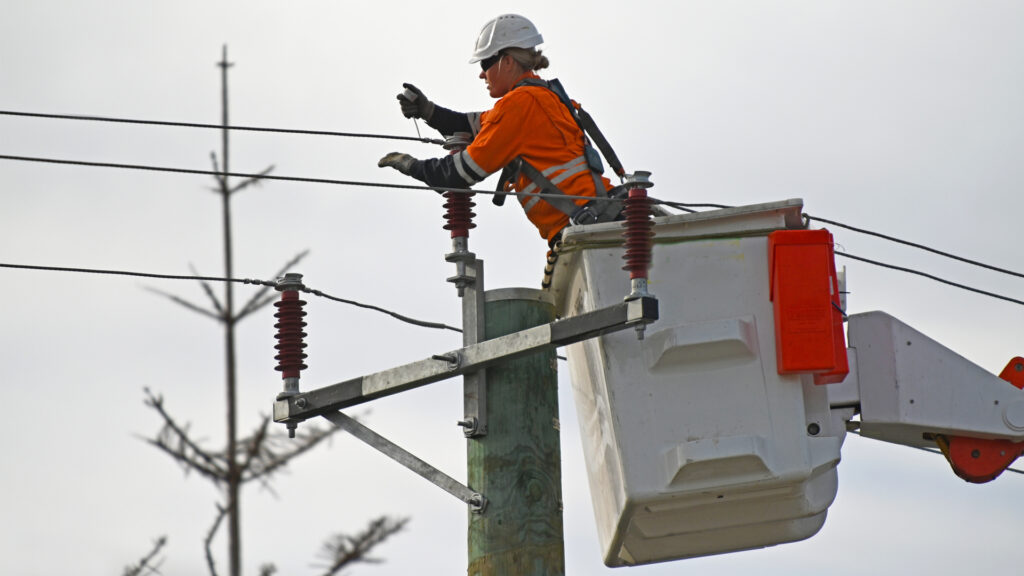By David Hastings, Suwannee St Johns Sierra Club
Who controls your utility? Most of us don’t know or don’t really care. What matters is that when we flip the switch, the light goes on. And when we turn on the kitchen faucet, we get fresh clean water that doesn’t taste bad or poison us.
The snag is that there are huge profits in providing these essential services, especially electricity. Investor-owned utilities, or private utilities, want you to be their customer, not the customer of a public utility. Which is why a wonky story about state takeover of a Gainesville utility has statewide implications, as well as repercussions for our climate.
Florida House Bill 1645 would transfer control of Gainesville Regional Utilities (GRU) from the city of Gainesville to a five-member Authority appointed by the governor. The alleged reason is high GRU debt and high rates. While the rationale is that customers need to be protected, the bill blatantly disregards Gainesville’s citizens, who voted by a 60% majority to defeat nearly identical measure in 2018.
The vast majority of GRU’s debt was incurred over a decade ago, when a low-carbon biomass plant was built. A few years later, in order to get out of a costly long-term contract, GRU wisely converted a $2.1 billion obligation over 30 years into a $750 million purchase, saving almost a billion dollars. Although $750 million may seem like a lot, utilities typically carry high debt because they have to build and operate expensive facilities.
There is no indication that GRU is in financial distress, based on investment grade bond ratings. In fact, all three major bond rating agencies give GRU top tier ratings – better than Duke and Florida Power and Light (FPL).

The true motivation for the legislation is not about debt or rates. While critics say that GRU electrical rates are high, the actual bill for is lower than for investor-owned utilities. The average GRU monthly electric bill in 2021 was $103 for residential customers, compared to $125, $143 and $135 per month for FPL, Duke and TECO, respectively.
This seeming paradox – high rates and low bills – is true because GRU spends money to lower energy use in customer’s homes – by insulating, servicing HVAC units and other energy efficiency measures. Bills are lower because customers use less electricity.
That’s the big advantage of a publicly owned utility. Since it is controlled by the local government, its decisions can be based on benefits to its customers. In contrast, investor-owned utilities are driven by the need to pay dividends to their investors.
Public utilities are also able to make decisions that take climate impacts into account. Big chunks of funding from the $369 billion Inflation Reduction Act are available just to public utilities.
A close read of the legislation suggests that the revised structure of GRU is designed to fail. Transferring control to GRU to a state-appointed Authority would likely result in the eventual ruin of GRU, with an investor-owned utility like FPL taking control. Those watching closely believe that this legislation may provide an easy way for a competitor to acquire GRU’s customers.
Several years ago, FPL tried unsuccessfully to buy Jacksonville’s public utility, JEA, for $11 billion. FPL did succeed in acquiring Pensacola-based utility Gulf Power Company. After the purchase, rates and bills increased substantially, causing distress across the Panhandle for utility customers. What utility will FPL takeover next?
Publicly owned power companies like GRU provide distinct advantages including local control, financial support for city government and assistance to low-income customers. As climate impacts continue to worsen, GRU has focused on renewable energy and energy efficiency as well as environmental stewardship
The irony of this legislation is that GRU has an award-winning record of exceptional reliability and safety, surpassing investor-owned utilities. Handing over control to a state-appointed Authority will not improve reliability or efficiency, reduce rates or continue carbon reduction goals. Instead, it appears designed to increase profits for FPL shareholders.
Next time you flip the switch to turn on the light or drink the water from the faucet, you might ask yourself: Who is in control of running my utility? Are they acting in my best interests?
David Hastings is a retired climate scientist and political chair of the Suwannee St Johns Sierra Club.
If you are interested in submitting an opinion piece to The Invading Sea, email Editor Nathan Crabbe at ncrabbe@fau.edu.



